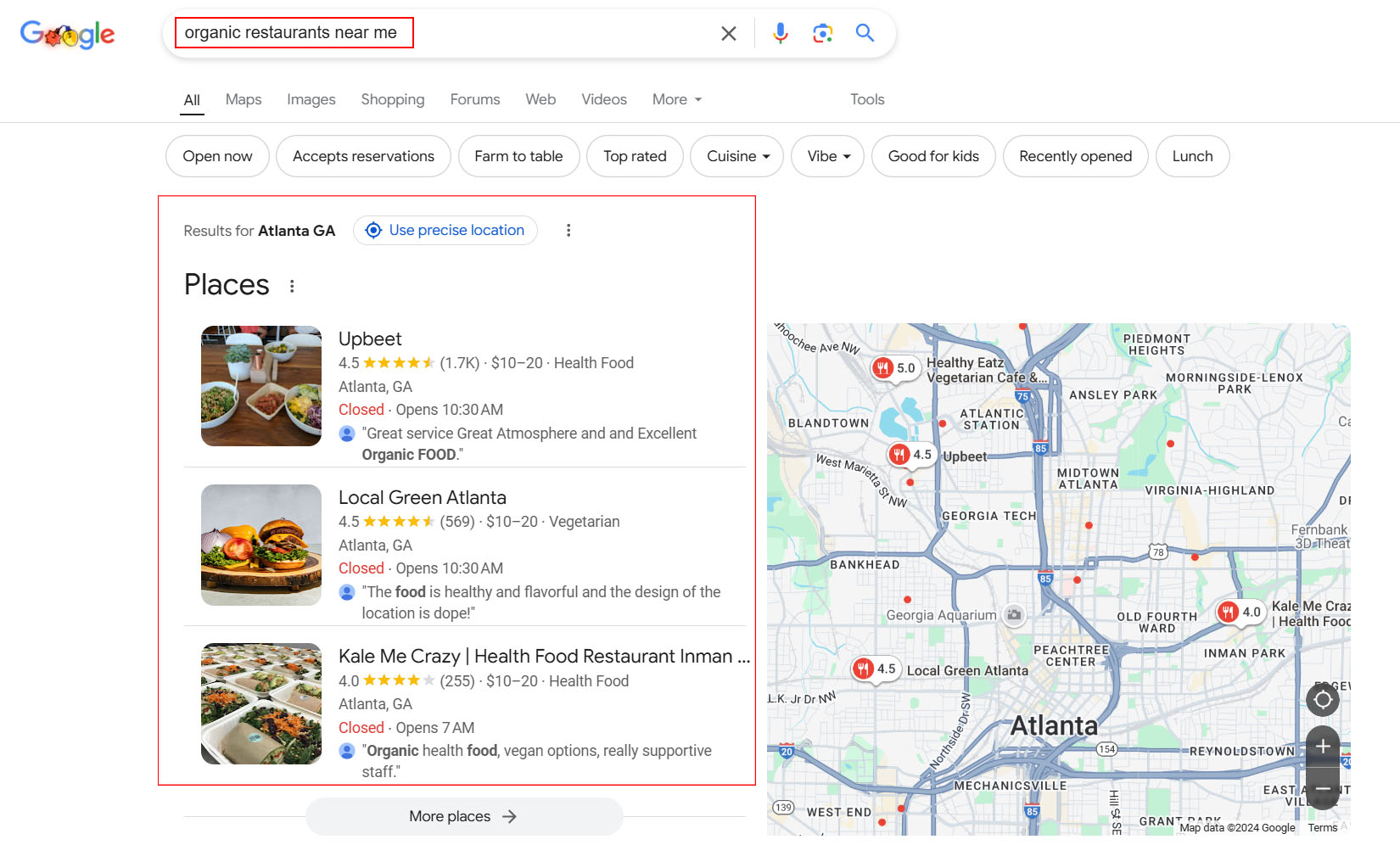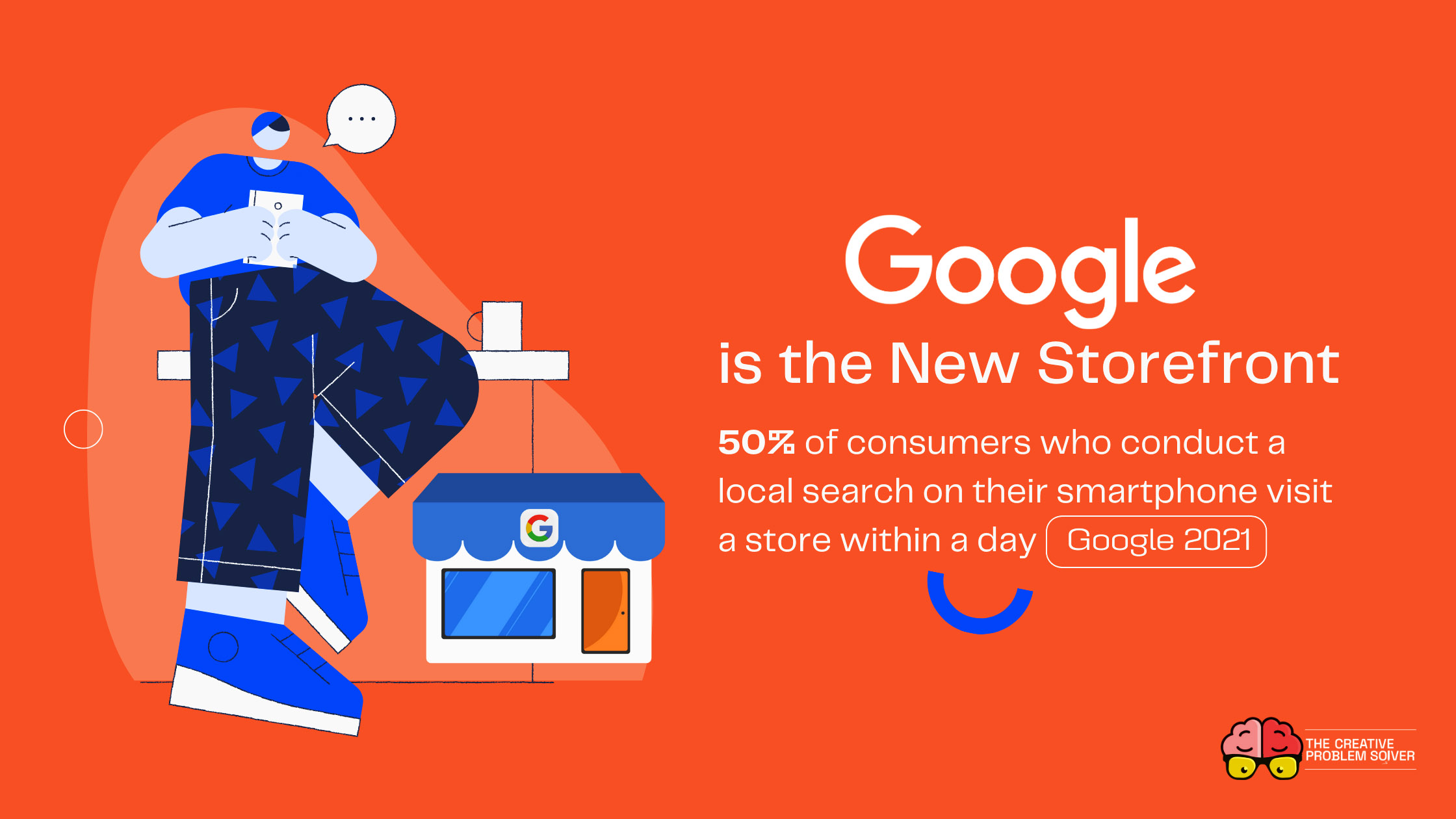Imagine having a beautiful shop filled with amazing products and services, yet not enough people know it exists. This scenario is all too common for small businesses and startups that underestimate the power of a strong online presence. As the saying goes, “Out of sight, out of mind” - your potential customers/clients are looking for you, but if they can’t find you online, they may not find you offline either.
So, let’s dive into why establishing an online presence is crucial for small businesses and how you can achieve it effectively without breaking the bank.
- Not Building an Online Presence? Your Business might Go Out of Business
- Reasons why Small Businesses Owners Overlook Building an Online Presence for their Businesses
- The Disadvantages of Not Building an Online Presence
- The Advantages of Building an Online Presence
- The Impact of Building an Online Presence
- The Key to Building a Strong Brand Online
- Small Businesses Relying Solely on Social Media for Online Visibility
- Relying on Social Media alone as Your Marketing Strategy is like…
- How to Build a Strong Online Presence - A Step-by-Step Roadmap
- Building a Strong Online Presence the Smart Way (for Small Businesses)
- Final Word
- Frequently Asked Questions (FAQs)
- 97% of consumers search online for local businesses before making a purchase decision.
- 91% of consumers reportedly visiting stores due to an online encounter, illustrating the power of digital touchpoints on customer behavior.
- The Internet, considered "the great equalizer" by John. T. Chambers, has leveled the playing field, giving small businesses and startups a chance to build as impressive a brand as much more established competitors.
- Relying solely on social media as your marketing strategy may seem cost-effective and efficient, but it has several significant drawbacks that can hinder a small business's long-term growth and stability.
- Due to the unique diverse skillset and a plethora of digital tools at their fingertips, solo marketers are now a great budget-friendly option for small businesses to build their brands online.

If your business is not on the internet, then your business will be out of business.
– Bill Gates

Words, though stated decades ago, are more relevant now than ever.
When I first came across this quote years ago, I thought to myself, ok it makes sense, but it was a bit hyperbolic. But with a little research and some observation, it hit me that the once richest man in the world might be onto something.
Think about this, have you ever gone two full days back to back without accessing the internet? Or, can you imagine going a week without going online?
Many people feel like a fish out of water after just a few hours without internet access, much less to go days without it. Imagine the psychological meltdown some people would suffer. Of course, I’m not speaking to the recluse – those special people amongst us who deliberately unplug and enjoy being unplugged. If you’re connected … you can definitely relate.
The fact that this – nomophobia,” short for “no-mobile-phone phobia – the scientific term used to describe the anxiety, stress, or discomfort that arises when a person is separated from their phones or unable to access the internet, is a thing shows how much the internet has become a cornerstone of modern life.
the majority of people in the world are using the internet (October 2024 data)
67.5% of the global population (5.52 billion people) are connected to the internet. (Statista)
And with the continuous expansion of global connectivity, the growth of IoT and smart technologies, humanity’s reliance on the internet will likely soon be at the levels of its reliance on oxygen and food…..and I’m not trying to be hyperbolic.
So, it’s amazing that, despite the growing emphasis on digital transformation and online commerce, a significant portion of businesses globally are “non-digital.”
28% of small businesses in the U.S. do not have a website
25% of small businesses globally not engaging in digital transformation or adopting online tools
While the old idiom of “what’s good for the goose is not necessarily good for the Gander” does fairly apply here, building an online presence can’t hurt, even where business success is being attained without one.
This article probes all angles, from the valid reasons small businesses shy away from building an online presence to the far-reaching consequences of failing to do so.
So, let’s dive into why establishing an online presence is crucial for your business and how you can achieve it effectively without breaking the bank.
Not Building an Online Presence? Your Business might Go Out of Business
The point the “Oracle of Omaha” was trying to make is that in today’s digital-first world, even if your business has a physical location, building an online presence is no longer optional—it’s essential.
SUPPORTING STATISTICS
Why Building an Online Presence is A Must
Whether you’re a cozy neighborhood cafe, a local boutique, or a new tech startup, you simply have to have some form of a presence online.
of consumers reportedly visiting stores due to an online encounter, illustrating the power of digital touchpoints on customer behavior.
of consumers search online for local businesses before making a purchase decision (BrightLocal).
of people research a company online before even visiting them or making a purchase.
of consumers start their product searches online.
of consumers who conduct a local search on their smartphone visit a store within a day.
online sales are growing nearly three times faster than in-store sales annually.
Reasons why Small Businesses Owners Overlook Building an Online Presence for their Businesses
Even with the increasing reliance on digital interaction, some established small businesses still lack an online presence.
Even with the increasing reliance on digital interaction, some established small businesses still lack an online presence.
Reasons
1. Limited Resources:
because of limited budgets and staff, business owners may prioritize immediate operational needs over long-term digital marketing investments. Thus, viewing a website, social media presence, or SEO as non-essential expenses. In reality, many online strategies can be cost-effective. But the perceived upfront investment deters some owners from exploring their potential ROI.
The key is to find the right service provider who understands the financial constraints of small businesses and will craft a tailored package suitable to their specific needs.
2. Underestimation of Online Impact:
some small business owners, especially service-oriented or community-based businesses, believe word-of-mouth marketing alone is sufficient to drive sales.
However, with most consumers researching businesses online before making a decision, even local businesses miss opportunities by not being visible digitally.
3. Lack of Digital Knowledge:
many small business owners, especially long-established ones, may lack understanding of digital marketing and its benefits. The ever-evolving landscape of online tools, and platform algorithms can feel overwhelming. This can cause hesitation in implementing an online strategy.
The key is to find the right service provider who has the expertise and experience to handle all of your digital marketing needs and streamline your operations so you won’t have to get your hands dirty.
4. Short-Term Focus:
the day-to-day demands of running a small business cause many owners to prioritize immediate sales and cash flow over building an online presence.
Building an online presence is a long-term investment that requires consistent effort. But executed well, the rewards can be tremendous
5. Fear of Negative Exposure:
some business owners fear the risk of negative reviews, trolls, or criticism that could hurt their reputation. Rather than managing their online image, they avoid it altogether. This limits their ability to attract and keep customers.
According to What’s The Big Data, a proactive response strategy often turns 70% of negative experiences into positive outcomes through timely and empathetic replies. Small Business Owners can request satisfied customers to leave reviews, creating a buffer against occasional negative feedback.
Now let’s look at why these reasons, while some valid, are detrimental to business success.
The Disadvantages of Not Building an Online Presence
The disadvantages of not building an online presence are significant. Ultimately, they could cost your business dearly in the long run.
1. Limited Reach:
a lack of an online presence limits your reach to walk-in customers/clients and/or referrals, missing out on attracting potential customers/clients who are actively searching for your products or services online. This also limits your growth potential and leaves you at the mercy of your local market.
2. Missed Sales Opportunities:
imagine walking into a store or business establishment you’ve never heard of. Would you trust it immediately? Probably not.

As more and more consumers turn to e-commerce to purchase goods, not having an online store or even an informational website means a major lost opportunity to maximize on sales.
DATA SOURCE: (2024 Brick Meets Click eGrocery Sales Forecast)
Online sales are growing nearly three times faster than in-store sales annually.
If your competitors are selling online and you’re not, you could be losing out on a significant portion of potential revenue.
3. Low Credibility:
in today’s world, businesses without an online presence are seen as outdated or even untrustworthy. Harsh, but consumers simply expect to find you online.
Many customers/clients check online reviews, browse company websites for services offered; company mission and goals, or social media presence to prove a business’s legitimacy. Without any of these, you risk losing credibility.
4. Poor Customer Engagement:
engaging with your target audience is crucial for building customer loyalty, generating repeat business, and gathering valuable feedback to improve business offerings. If you’re not online, you’re missing the chance to engage with your customers where they are.
The Advantages of Building an Online Presence
Now, let’s flip the script—what happens if your business invests in building an online presence?
Here are the key reasons every small business, regardless of its physical footprint, must prioritize building an online presence:
1. Visibility and Accessibility in a Crowded Marketplace:
Even if your brick and mortar store is getting foot traffic or you’re able to maintain a viable referral program for your service-based business, your online presence ensures visibility beyond your immediate locale. Unlike a physical storefront with set business hours, your online presence gives you 24/7 accessibility. This allows customers/clients to buy from you, or sign up for your service anytime, anywhere. This significantly expands your potential customer base and revenue opportunities.
The online world opens the door to a much broader audience. It’s called the World Wide Web (WWW) for a reason. Two of the main reasons spiders make webs are to attract (mates) and communicate (with each other). With the right digital marketing strategies and execution, you can target potential customers/clients both locally and internationally.
Google is the new storefront—people turn to search engines, social media, and online reviews before visiting businesses.

Building an online presence will give your target audience 24/7 access to your business. Even when your doors are closed, potential customers can learn about your services, check your reviews, and make purchases or bookings online.
2. Credibility and Trust:
The digital landscape provides endless opportunities for growth and brand visibility. A professional-looking, well-designed website, active social media presence, and positive customer reviews will build legitimacy, trust, and credibility for your business. As they say, first impressions matter, and in today’s world, those impressions are often formed online.
DATA SOURCE: (Blue Corona, 2023)
70-80% of people research a business on the internet before visiting it or making a purchase than in-store sales annually.
"There are two equalizers in life - the Internet & education." -John Chambers, Cisco CEO in #Davos pic.twitter.com/DSHDH8eoRA
— Bill Gross (@Bill_Gross) January 26, 2014
3. Competitive Edge:
as the former executive chairman and CEO of Cisco Systems said, building an online presence levels the playing field, allowing small businesses to compete with larger brands. The internet is the game changing platform that allows the “small man” to look big. That’s if you apply smart marketing. For example, good local SEO can make your business show up at the top of search engine results, placing you in front of people who are looking for your products or services.
4. Customer Engagement and Loyalty:
having an online presence allows businesses to engage with your customers/clients easier and more frequently. Keep your brand top of mind, encourage repeat business, and generate positive word-of-mouth by answering customer queries on social media, or sending targeted email campaigns.
5. Cost-effective Marketing and Advertising:
digital marketing tactics like Search Engine Optimization (SEO), social media, and email marketing are much more affordable for small businesses compared to traditional channels like print, radio, and TV. And the cherry on top – these modern tactics often lead to higher return on investments (ROI).
6. Valuable Customer Insights
the data and analytics you can gather from your online platforms provide invaluable insights into your target audience’s behaviors, preferences, and pain points. These pivotal metrics would’ve been quite expensive and difficult to acquire offline. This intelligence can then inform your marketing strategy and help you deliver a more personalized, relevant experience for your customers.
And that’s just the tip of the iceberg for the benefits of building an online presence as a small business.
See all the benefits building an online presence brings to a small business in this article
Now, to drive the point home, let’s look at how building an online presence impacts the ‘bottom line.’
The Impact of Building an Online Presence
Globally, small businesses that invest in building an online presence consistently see higher rates of success than those without.
Here are some key statistics from recent studies:
SUPPORTING STATISTICS
How Online Presence is Impacting Small Businesses
Globally, small businesses that invest in building an online presence consistently see higher rates of success than those without.
of small businesses that actively maintain an online presence saw significant increases in revenue from 2023 to 2024.
of small businesses with an online presence reported profitability in 2024.
increase in lead generation compared to businesses without a digital presence.
of consumers view businesses with a website or a strong online footprint as more credible and reliable, which directly impacts customer retention and sales conversion
Okay, so by now you should understand that a strong online presence is vital to the success of your small business or startup.
But where do you even begin?
Before I show you how there’s one underrated but very important factor to consider before you start.
To attain this type of positive impact, a business cannot operate in a silo when establishing a brand online.
Ready to build an online presence that increases business ROI?
The Key to Building a Strong Brand Online
Building an online presence involves several essential components with around seven to ten core elements, each playing a unique role in establishing brand credibility, increasing visibility, and fostering customer engagement.
These components, when integrated and optimized, create a well-rounded, effective online presence that attracts and keeps customers.
But there’s one in particular that, through its nature and the success it has garnered many, has lulled many small business owners into a false sense of dependency.
Small Businesses Relying Solely on Social Media for Online Visibility
Some business owners believe they can achieve sufficient visibility through social media alone. But what they might not understand is that social media platforms, outside of LinkedIn, are primarily used for entertainment and light-weight communication.
While a very powerful asset to grow a brand, social media doesn’t make the best conversion tool. It’s more of an engagement and interaction tool. Engagement and interaction that now come at an increasing cost, by the way.
Gone are the days when you can quickly build a following organically with great content and consistent posting. Now, you have to pay to play.
Relying on Social Media alone as Your Marketing Strategy is like…
In my experience working with some clients who live in societies where the culture is more geared towards social media, it’s a task to convince them to build a website for their businesses.
While social media is a central hub for almost everything online because of the culture of the society, it’s largely a noisy red ocean. Most users are there for frivolous reasons and to frolic. So, good luck diverting their attention away from some enticing 10 seconds TikTok video (likely brings no real value) that satisfies the typical user’s insatiable appetite to be entertained, to click on your flyer that’s promoting your boring accounting services.
While some businesses achieve a lot of success on social media and see tremendous ROI, it ultimately comes down to the type of business and who it’s trying to attract.
In the end, relying solely on social media as your marketing strategy may seem cost-effective and efficient, but it has several significant drawbacks that can hinder a small business’s long-term growth and stability.
Here are a few:
1. Lack of Ownership and Control
While social media platforms don’t own the business itself, it sure owns the content. So, any changes in platform algorithms, policies, or monetization strategies can decimate visibility without notice. Even scarier, social media platforms have the power to suspend or delete any account without warning.
So, if all of your business marketing chips are on the Instagram or YouTube table, or they are your primary customer connection point, you’re out of luck.
2. SEO and Discoverability Issues
Unlike a website’s content, social media posts aren’t as searchable or indexable by search engines. Relying solely on it limits discoverability in search results, meaning potential customers who search on Google may never find your business. A website enhances SEO capabilities, making it easier for customers to find the business organically online.
3. Limited Customization and Branding
Social media offers limited options for fully customizing a brand’s online presence. The platform’s structure and design confine businesses. While a website allows for full control over the design, user experience, and branding, helping establish a more professional and unique presence.
4. Limited Content Depth
Most social media platforms prioritize short-form, attention-grabbing content. While a website is more flexible and enables businesses to publish in-depth information, such as blog posts, case studies, and other valuable content that can help educate customers and nurture leads.
5. Fewer Lead Generation Options
While social media is a good lead generation source, they’re limited compared to what a dedicated website can offer. Well-designed websites are lead magnets allowing you to set up email sign-up forms, downloadable resources, and pop-up offers that more effectively capture customer information. (Review42)
6. Customer Perception and Credibility
Many consumers view a website as a sign of professionalism and legitimacy, while businesses that rely solely on social media seem less established. A well-maintained website serves as a central hub for brand information, reinforcing trust among potential clients.
7. Difficulty in Building a Multi-Channel Strategy
Relying only on one channel will always limit your marketing efforts. A website acts as a central hub, connecting multiple other channels like email marketing, paid advertising, and content marketing. The lack of that center-piece makes cohesively interconnecting marketing strategies difficult, ultimately limiting business reach and effectiveness. (Increditools)
So, how exactly do small businesses and new startups go about building a powerful online presence?
So, how exactly do small businesses and new startups go about building a powerful online presence?
Like what you’re reading so far?
Well, there’s a lot more where this came from
Enter your email address to get articles like this sent to your inbox just twice a month
How to Build a Strong Online Presence - A Step-by-Step Roadmap
This involves several essential components with around seven to ten core elements, each playing a unique role in establishing brand credibility, increasing visibility, and fostering customer engagement.
Here’s a breakdown of the main components:

1. Build a Marketing Plan
Construct an overarching marketing strategy that will guide all your market efforts. Ensure you build this plan around addressing the problems and pain-points of your target audience. Start by crafting comprehensive Customer/Client Personas. Define your brand identity. Clearly articulate your unique value proposition (UVP), unique selling point (USP) brand personality, and key messaging that will resonate with your target audience.
2. Create a Professional Website
Your website is your online storefront, an online hub, where customers/clients go to learn about products, services, and brand values. It should be easy to navigate, mobile-friendly, loads quickly, and optimized for search engines.
3. Optimize for Local and/or Global Search
If your business is local or international, make sure your business shows up in search engines. To show up in local searches and maps, make sure you set up a Google My Business profile for your business. Implement effective SEO strategies to get your website rank higher in search engine results. Do comprehensive keyword research to find relevant keywords to use on your website and in content.
Tools like SEMrush or Ahrefs are great tools to use. However, these tools can get pricey so, if you’re on a budget SEO PowerSuite might be a better option. It’s not as convenient as the more popular tools, but I’ve found it to be very useful and an excellent value for money.
4. Leverage Social Media
Social media will allow you to reach a wider audience and engage with customers directly. Choose platforms where your target audience is most active and consistently interact with them. Post valuable and engaging content regularly, respond to customer inquiries, and run promotions to keep your audience engaged.
5. Build an Email List
Collect emails from your website visitors and use social media platforms to encourage sign-ups to nurture customer relationships. Send targeted emails to share updates, promote special offers, or showcase new products.
6. Content Marketing
Create regular, high-quality content to help establish you as an authority in your industry. Write SEO optimized blogs, create informative videos, and infographics to showcase your expertise and keep your audience engaged.
7. Utilize Online Advertising
Use Pay-Per-Click (PPC) advertising or Social Media ads to target specific demographics effectively and reach a broader audience.
8. Encourage Online Reviews
Positive reviews are vital to building trust and encourage new customers to choose your business. Ask your satisfied customers to leave reviews on platforms like Google My Business, TrustPilot, G2, TrustRadius, Yelp, and Facebook.
9. Submit your website to Business Directories
Claim and manage your online listings. List your business properly on industry-specific business directories and general business listing platforms such as Google My Business, Bing Places, and Yelp.
10. Monitor and Analyze Performance
Use performance analysis tools like Google Analytics to track your websites and social media channel’s performance. Analyze the data to understand what’s working and where you can improve.
EXTRA:
If you already have an online presence but it needs some oomph, run an audit. Closely inspect your existing website, social media accounts, online listings, and any other digital assets. Identify each strengths, weaknesses, and highlight opportunities for improvement. If you’ve never established a brand online, getting through the process may seem like a mountain to climb. Fortunately, the undertaking doesn’t have to be overwhelming.
The beauty of building an online presence for your small business or startup is that you don’t have to do it all at once. Start by building your website and online listings and then gradually expand your efforts as you have the time and resources.
Read this comprehensive guide to learn all the steps of building an online presence that not only establishes your brand on the web, but generates leads and sales for your business.
And remember, you don’t have to go it alone.
We mentioned earlier why small businesses owners overlook building an online presence. The actual issue is not stubbornness per se …
…. it’s an unawareness that there’s a suitable cost-effective option that gets results without the hassle.
So, let’s explore the solution.
Building a Strong Online Presence the Smart Way (for Small Businesses)
Here’s where things get really interesting.
Contrary to popular belief, you don’t need a big, expensive marketing budget or an entire agency to build a powerful online brand. In fact, partnering with a capable one-person marketing team might be your best bet.
The Power of the One-Person Marketing Team
Now, I know after seeing the steps to building an online presence you might be thinking: “How can one individual build a robust online presence for a whole brand?
Well, believe it or not, it’s possible and will become increasingly possible in the future.
The transformative power of modern technology in the digital era has ushered in a new type of Polymath – the ‘Digital Renaissance Man/Woman’–an individual who has a wide breadth of knowledge, skills, and experience across multiple areas.
Because of the unique, diverse skill-set and a plethora of digital tools at their fingertips, these individuals can do many things and wear many hats. And if you’re thinking they are ‘Jack of All Trades, Masters of None,’ they’re NOT! They also have a depth of knowledge and expertise in at least one area, sometimes a couple. In other words, a ‘Specialized Generalist,’ or what marketing calls a T-Shaped or M-Shaped Marketer.
These are the types that mostly make up one-person marketing teams.
And guess what……they’re perfect for small businesses – highly skilled, versatile, and CHEAP!
And on top of that, working with a skilled one-person marketing team also comes with many other benefits:
1. Personalized Attention and Support
When you work with a one-person marketing team, you’re getting a dedicated, strategic ally – an extension of your team. You’ll have direct access to the individual responsible for your campaigns. This level of personalized attention and support is difficult to replicate at a larger agency.
No matter how traditional marketing agencies care, their business model forces them to have as many simultaneous clients as possible. One-person marketing teams are usually laser-focused on one client at a time, learning the ins and outs of their business. This allows them to develop highly targeted, hyper-effective strategies to grow your online presence.
2. More Streamlined, More Efficient Processes
Without the deterring overhead costs and bureaucratic red tape of larger marketing agencies, a one-person marketing pro can work quickly and nimbly to better execute your digital marketing initiatives.
3. Agility and Flexibility
One of the primary advantages of working with a solo marketer is agility. You won’t be locked into a rigid, one-size-fits-all contract like you would be with a traditional agency. Also, you won’t need to go through layers upon layers of approvals. You can implement decisions and changes quickly, saving precious time.
4. Cost-Effectiveness
And of course, hiring a large marketing agency can get really expensive. With high overhead costs, bigger agencies pass those expenses onto their clients. Because of a much lower budget, solo marketers can offer all the expertise and personalized attention you need, often at a fraction of the cost and without compromising on quality. Get high-impact results without the bloated price tag.
If you’re still not convinced working with a One-Person Marketing Team is viable see how it stacks up against traditional agencies in this in-depth article ‘One-Person Marketing Team vs. Larger Agencies: What’s the Difference?’
Choosing the Right One-person Marketing Team
Of course, just like everything else in life, not all solo marketers are created equal.
It’s important to do your due diligence and find an experienced professional with a proven track record of helping small businesses and startups build their online presence and achieve measurable results.
Look for someone who not only has deep expertise in areas like Copywriting, SEO, content creation, marketing strategy, social media, email, website building and management, but who also understands the unique challenges and opportunities facing small businesses in the digital age.
As we mentioned earlier, digital marketing is largely like a puzzle with several moving parts. There are several components that interconnect and overlap that have to be nailed down in order to archive success, which can overwhelm under-manned small businesses.
The right one-person marketing partner can be an absolute game-changer, putting all the pieces together for your business in ONE PLACE, with ONE PERSON, and at ONE COST!
Final Word
In the past, the odds of small businesses toppling larger, more established competitors who had the budgets to invest in big, flashy marketing campaigns were as slim as………
This allowed “the bigger guys” to essentially dominate markets.
But thanks to “great equalizer “- the internet, the playing field has largely been leveled. Now, the smallest mom-and-pop shop or freshly minted startup can build an impressive online presence and reach a global audience.
And the best part, small businesses don’t need to hire a large, expensive agency to build their brands online. A highly skilled one-person marketing team can do the trick for just a fraction of the cost of an agency.
If you’re having business success offline, now’s the time to go digital.
We can help you do it the smart way. Let’s do it!
Frequently Asked Questions (FAQs)
Why is building an online presence important for small businesses?
Building an online presence is crucial because it:
- Enhances visibility and accessibility to a broader audience.
- Establishes credibility and trust among potential customers.
- Opens opportunities for cost-effective marketing and engagement.
- Generates leads and drives revenue through digital channels like search engines, social media, and email marketing.
What are the most common challenges small businesses face in going online?
Small businesses often encounter:
- Budget constraints: Perception of high costs for websites or digital tools.
- Lack of technical knowledge: Overwhelmed by digital platforms and marketing strategies.
- Fear of negative exposure: Concern about bad reviews or trolls.
- Time limitations: Daily operations leave little time for building and maintaining an online presence.
Is a website essential, or is social media enough?
While social media is valuable for engagement, it’s not enough. A website offers:
- Ownership and control over content.
- Better SEO capabilities, making it easier for customers to find you.
- A central hub for integrating other marketing efforts like email and paid advertising.
What are the steps to build a strong online presence?
Key steps include:
- Create a professional, user-friendly website.
- Optimize for search engines (SEO).
- Leverage social media to engage with your audience.
- Build an email list for direct marketing.
- Produce valuable content (blogs, videos, infographics) to attract and retain customers.
- Monitor and analyze performance to refine strategies.
How much does it cost to build an online presence?
Costs vary widely depending on your goals. You can start small with:
- Free or low-cost website builders like Wix or WordPress.
- Social media platforms for initial visibility.
Gradually invest in paid tools for SEO, ads, or professional assistance.
What is a one-person marketing team, and why is it beneficial?
A one-person marketing team is a solo professional skilled in multiple areas like SEO, content creation, and digital strategy. Benefits include:
- Personalized attention and tailored strategies.
- Cost-effectiveness compared to large agencies.
Agility and faster implementation of marketing efforts.
Can I measure the ROI of building an online presence?
Yes! Tools like Google Analytics and social media insights help track:
- Website traffic and engagement.
- Leads generated through SEO or email campaigns.
- Conversion rates from ads or calls-to-action.
Businesses with an online presence often report 126% higher lead generation and improved profitability
How can small businesses handle negative reviews or trolls online?
- Respond promptly and professionally to legitimate complaints.
- Encourage satisfied customers to leave positive reviews to offset negativity.
- Use moderation tools on social media to manage harmful comments.
How long does it take to see results from an online presence?
Results vary depending on the effort and strategies used:
- SEO and organic growth may take months.
Paid ads and social media campaigns often yield quicker outcomes.
Consistency in content and engagement is key for long-term success.
What industries benefit the most from building an online presence?
All industries benefit, but especially:
- Retail and e-commerce: Driving sales online.
- Service-based businesses: Attracting local clients.
- B2B businesses: Establishing credibility and generating leads through content marketing.

About Jermaine Wright
A versatile Creative Content Marketer that fuses Writing, Design, and SEO to create content that moves the needle for organizations. Creative, Analytical, and Technical, Jermaine covers the entire content process from content research to content analytics. See full bio




